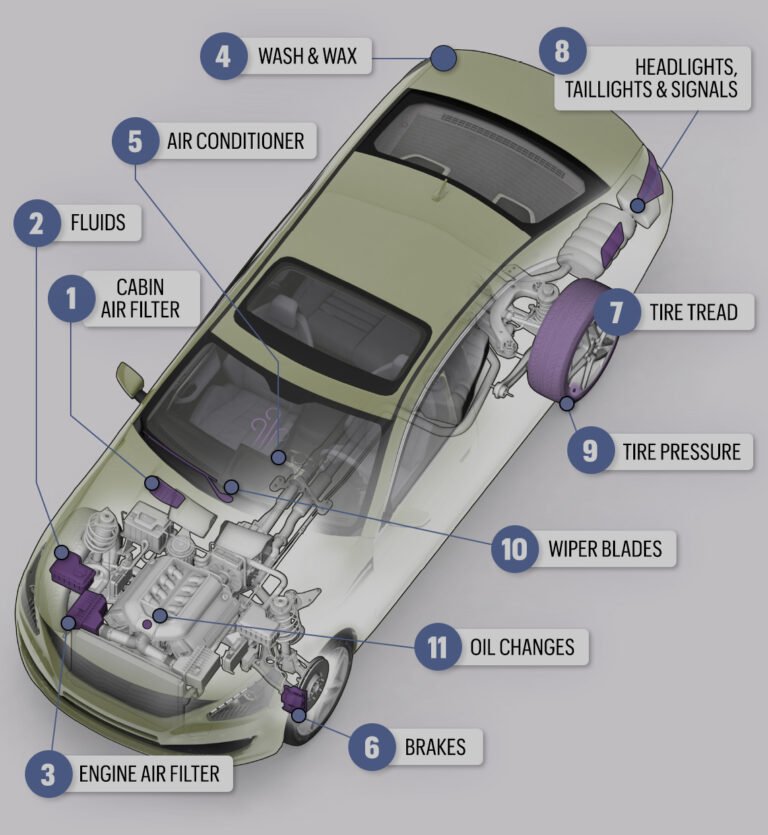The Importance of Regular Maintenance for Your Vehicle
Maintaining your vehicle isn’t just about fixing issues as they arise; it’s about ensuring its longevity and performance through consistent care. Regular mechanical maintenance is the cornerstone of keeping your car running efficiently, safely, and economically. By focusing on routine checks and preventative measures, you can save yourself from costly repairs and untimely breakdowns.
In this article, we’ll explore the key aspects of vehicle maintenance and their impact on your car’s performance and longevity.
- The Vital Role of Oil Changes in Engine Health
Oil changes are a fundamental part of vehicle maintenance. Engine oil acts as a lubricant for the moving parts within your engine, reducing friction, dissipating heat, and preventing wear and tear.
Why Are Regular Oil Changes Necessary?
- Protects Engine Components: Fresh oil ensures that all engine components are adequately lubricated, preventing grinding and damage.
- Improves Fuel Efficiency: Clean oil reduces strain on the engine, allowing it to run more smoothly and use less fuel.
- Prevents Overheating: Old or dirty oil loses its ability to regulate heat, which can lead to overheating and potential engine failure.
How Often Should You Change Your Oil?
While traditional advice suggested changing oil every 3,000 miles, advancements in engine and oil technology have extended this to 5,000–7,500 miles for many vehicles. Always consult your owner’s manual for the manufacturer’s recommendations.
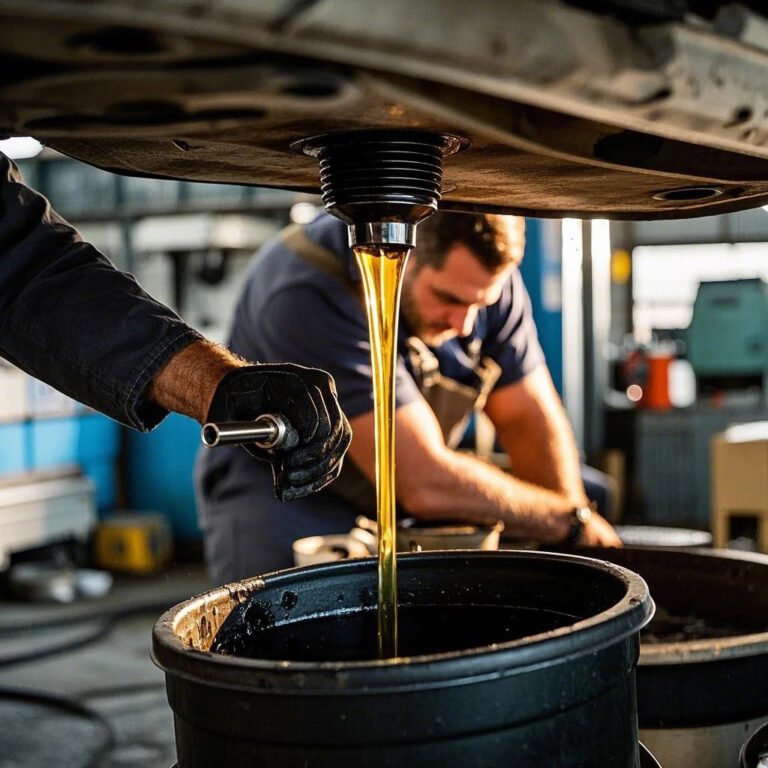
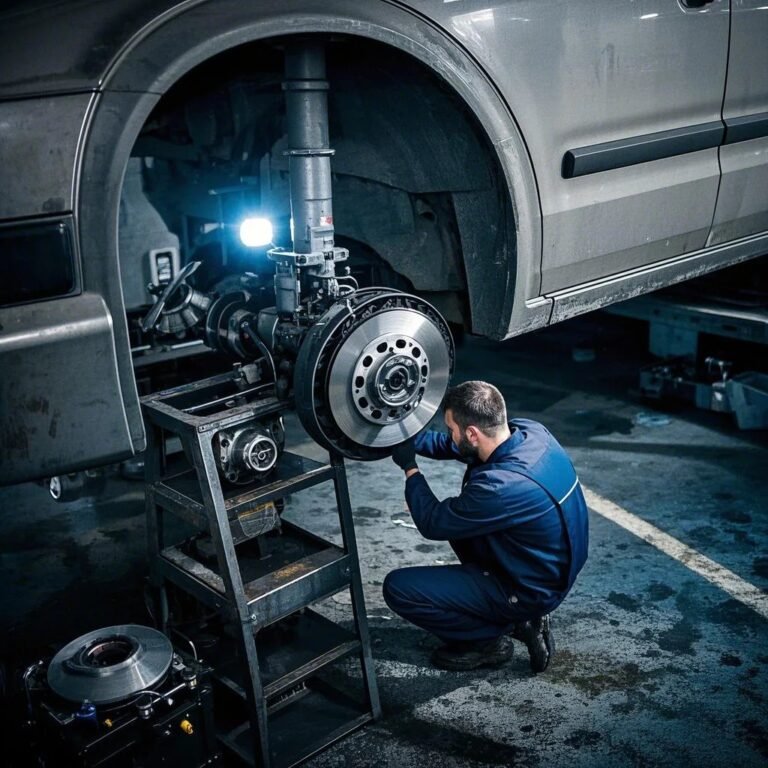
Brake Inspections: A Non-Negotiable Safety Measure
Your vehicle’s braking system is one of its most critical safety components. Neglecting regular brake inspections can put you and others on the road at risk.
Key Components to Monitor
- Brake Pads: Worn-out pads reduce braking efficiency and can damage the rotors.
- Rotors and Discs: These surfaces must remain smooth to ensure proper contact with the brake pads.
- Brake Fluid: Low or contaminated brake fluid can compromise your braking power.
Signs You Need a Brake Check
- Squealing or grinding noises.
- A spongy or unresponsive brake pedal.
- A noticeable pull to one side when braking.
Regular brake inspections should be part of your routine maintenance schedule, ideally every 12,000 miles or once a year, depending on usage.
The Importance of Fluid Checks for Vehicle Longevity
Fluids play a crucial role in keeping your vehicle’s components lubricated and functioning optimally. Neglecting fluid levels or changes can lead to serious mechanical issues.
Essential Fluids to Monitor
- Engine Oil: Maintains lubrication for engine components.
- Transmission Fluid: Ensures smooth gear shifting and prevents transmission wear.
- Coolant/Antifreeze: Regulates engine temperature, preventing overheating or freezing.
- Brake Fluid: Powers the hydraulic braking system.
- Power Steering Fluid: Makes steering smooth and responsive.
- Windshield Washer Fluid: Provides clear visibility in adverse conditions.
How to Stay on Top of Fluid Maintenance
- Regularly check fluid levels using dipsticks or reservoirs.
- Follow your vehicle manufacturer’s schedule for fluid replacements.
- Address leaks immediately to avoid further damage.
Timing Belt Replacement: Don’t Wait Until It’s Too Late
The timing belt is a critical component that ensures your engine’s valves open and close in sync with the pistons. Ignoring its maintenance can result in catastrophic engine failure.
Why Timing Belts Are Important
- They control the timing of engine functions, preventing collisions between valves and pistons.
- A worn or broken timing belt can cause significant engine damage and leave you stranded.
When Should You Replace the Timing Belt?
Most manufacturers recommend replacing the timing belt every 60,000–100,000 miles. Always refer to your owner’s manual for guidance, as ignoring this essential maintenance can lead to costly repairs.
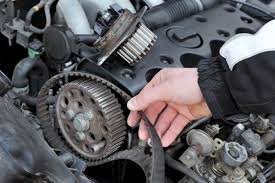
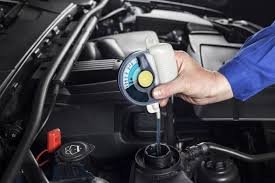
The Hidden Costs of Neglecting Maintenance
Skipping regular maintenance might seem like a money-saving move initially, but it often leads to more expensive repairs down the line. For example:
- Ignoring small issues: A minor oil leak or worn brake pad can escalate into major problems.
- Decreased resale value: A poorly maintained vehicle fetches a lower price in the market.
- Increased fuel consumption: A car in poor condition often requires more energy to operate, raising your fuel costs.
Financial and Safety Benefits of Routine Maintenance
- Fewer emergency repairs mean more predictable expenses.
- A well-maintained vehicle is safer to drive, reducing accident risks.
DIY Maintenance vs. Professional Services
While some maintenance tasks can be handled at home, others require professional expertise.
Tasks You Can Handle Yourself
- Checking tire pressure and topping up fluids.
- Replacing windshield wipers or light bulbs.
- Inspecting the air filter for debris.
When to Call a Professional
- Advanced diagnostics, such as engine performance issues.
- Brake or transmission repairs.
- Timing belt or water pump replacements.
Investing in professional services ensures accurate problem diagnosis and safe repairs.
The Impact of Maintenance on Longevity and Performance
Regular maintenance doesn’t just prevent breakdowns; it enhances your driving experience. A well-maintained car:
- Runs smoother and quieter: Optimized systems reduce vibrations and noise.
- Performs reliably: Regular checks catch potential issues early, minimizing downtime.
- Lasts longer: Proper care extends the life of key components.
Tips for Staying on Top of Maintenance
Create a Maintenance Schedule
Use your owner’s manual as a guide to set reminders for oil changes, brake inspections, and other routine checks.
Keep Records
Document all services performed on your car. This helps track what’s been done and demonstrates care when selling the vehicle.
Listen to Your Car
Pay attention to unusual noises, smells, or performance changes. These are often early signs of issues.
Conclusion
Regular mechanical maintenance is the key to a safer, more reliable, and cost-effective driving experience. By dedicating time to routine checks and repairs, you not only ensure your vehicle’s performance but also protect your investment. Don’t wait for problems to arise—stay proactive and keep your car in optimal condition.
.
